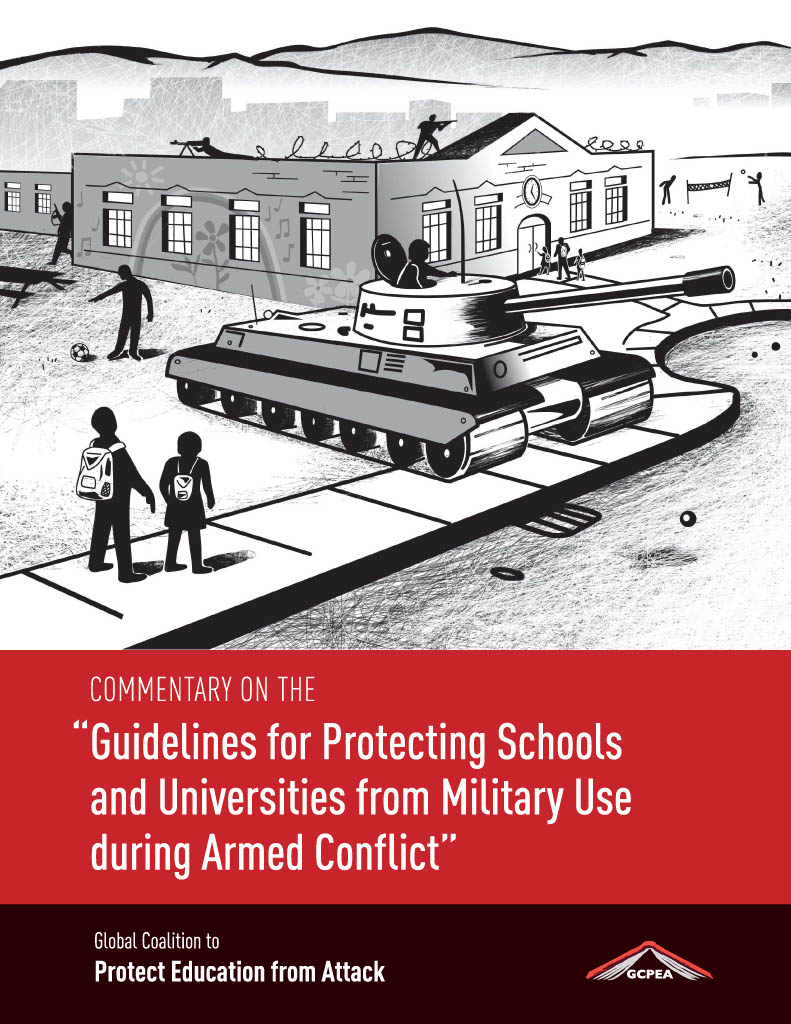GCPEA News
GCPEA Commemorates the 10th Anniversary of the Launch of the Guidelines with their Principal Author, Steven Haines
GCPEA, December 13, 2024
On December 16, 2024, the Global Coalition to Protect Education from Attack (GCPEA) commemorates the 10th anniversary of the launch of the Guidelines for Protecting Schools and Universities from Military Use During Armed Conflict. Over the last decade, 120 States have endorsed the Guidelines, a core component of the Safe Schools Declaration (SSD), which provide concrete guidance for armed forces and non-state armed groups to protect education when planning and executing military operations.
To mark the occasion, GCPEA’s Senior Advocacy and Policy Advisor, Ilaria Paolazzi, sat down with Professor Steven Haines, the principal author of the Guidelines. In a far-reaching conversation, they discussed the origin of the Guidelines, points of progress and regression, and the pressing need to better protect education from attack in armed conflict.
Recalling the different political and practical considerations that led GCPEA to develop the Guidelines, as opposed to advocating for a new international binding instrument, Professor Haines explained the very essence of the Guidelines as a tool that military forces can use in theatre to help shaping decision-making in line with international humanitarian and human rights law.
Professor Haines argued that the Guidelines and SSD have been a phenomenal diplomatic success, in part because they were created to be straightforward and easy to adopt while not creating new legal obligations. However, he cautioned that “the more difficult thing to ascertain is how successful the Guidelines have been in application.” Pointing to the disturbingly high number of attacks on education in contexts such as Ukraine and Palestine, he said that “evidence of war” shows that more progress is needed on the operational and tactical level.
Professor Haines also argued the need to continue to get the message out regarding the long-term effects of military use of schools and the benefits of preventive action. Remembering a past trip to Liberia, he recalled that some schools damaged by the civil war there had never recovered. GCPEA has found that attacks create fear among students and parents and decrease enrollment. The longer students are away due to schools damaged by armed conflict, the less likely they are to resume formal learning, especially girls and students with disabilities.
Urging all remaining states to endorse the SSD, Professor Haines stressed that “the Guidelines and the Safe Schools Declaration have a very serious but very sensible message at their heart – education needs to be protected. If a state, territory, or community is going to benefit from peace in the future, then it needs a good, sound, solid, safe education infrastructure.”
Professor Haines concluded that in the long-term, State practice in relation to the implementation of the Guidelines and the SSD may ultimately lead to the crystallization of the prohibition of military use of schools and universities as a customary norm.
Listen to the whole conversation below!




